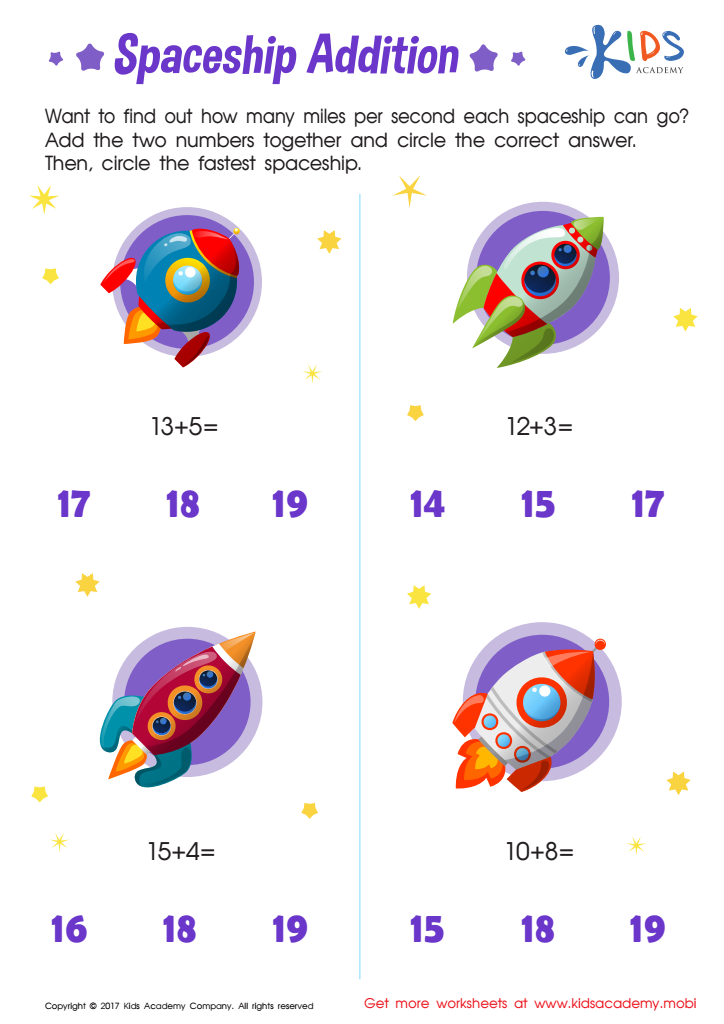Mental math skills Kindergarten Worksheets
7 filtered results
-
From - To
Boost your kindergarten students' mental math skills with our engaging worksheets designed to make learning fun and effective! Our collection features activities that enhance number recognition, simple addition and subtraction, and problem-solving abilities. Each worksheet encourages young learners to think critically and develop confidence in their mathematical abilities, using playful themes and vibrant visuals that capture their attention. With a variety of challenges suited for different skill levels, these worksheets not only promote independent learning but also make for excellent practice at home. Help your little mathematicians thrive with our mental math skills worksheets today!
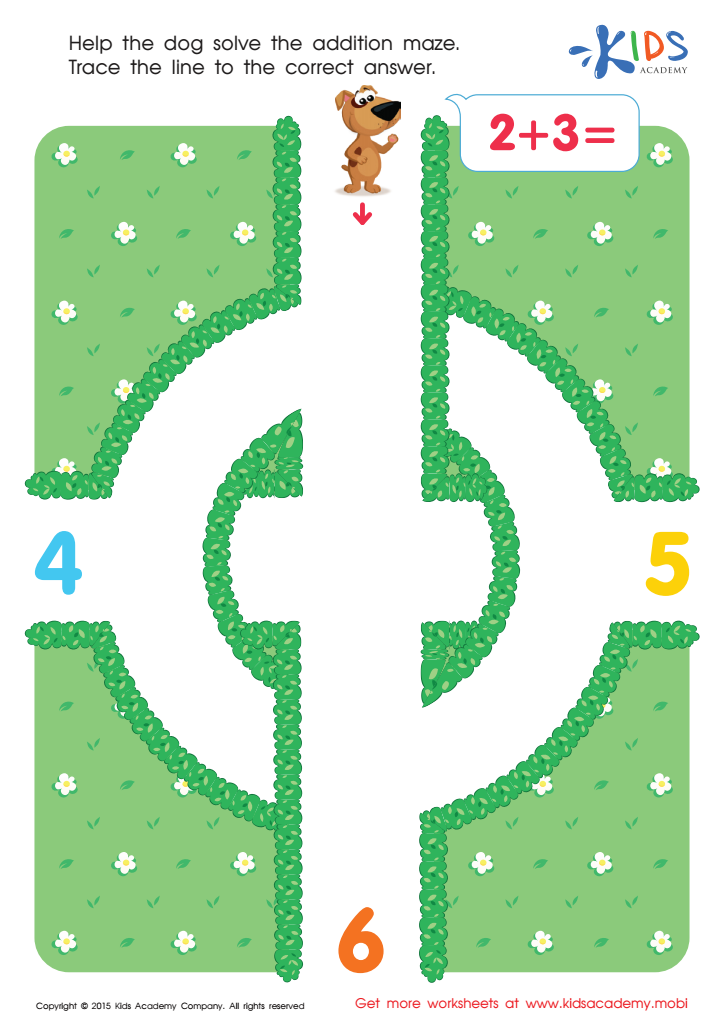

Two And Three Addition Worksheet
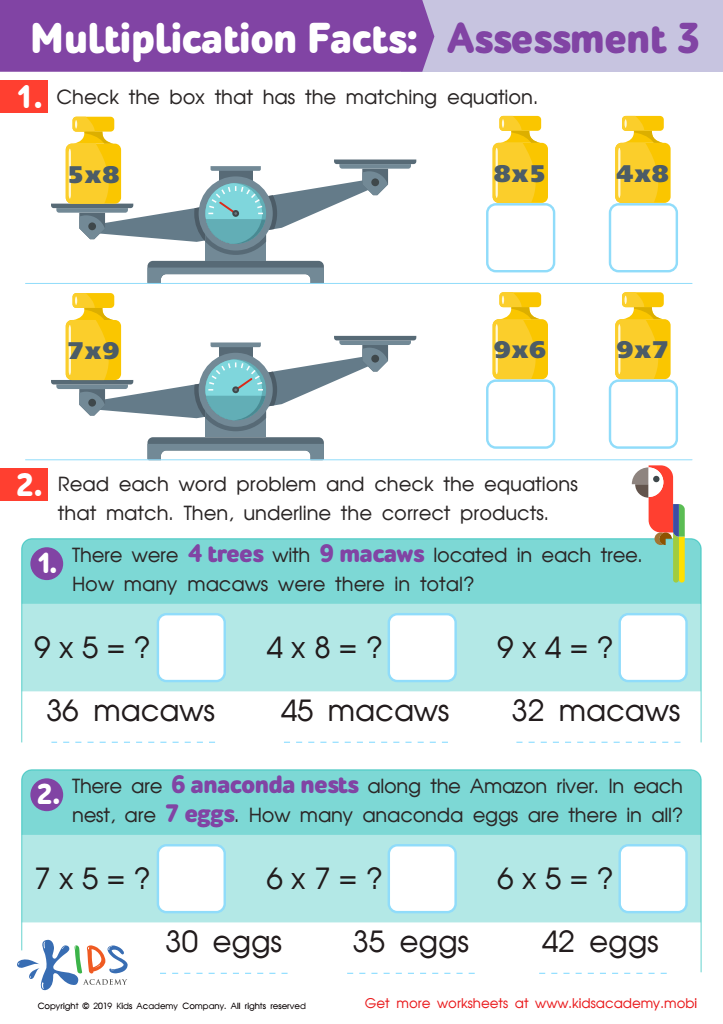

Multiplication Facts: Assessment 3 Worksheet
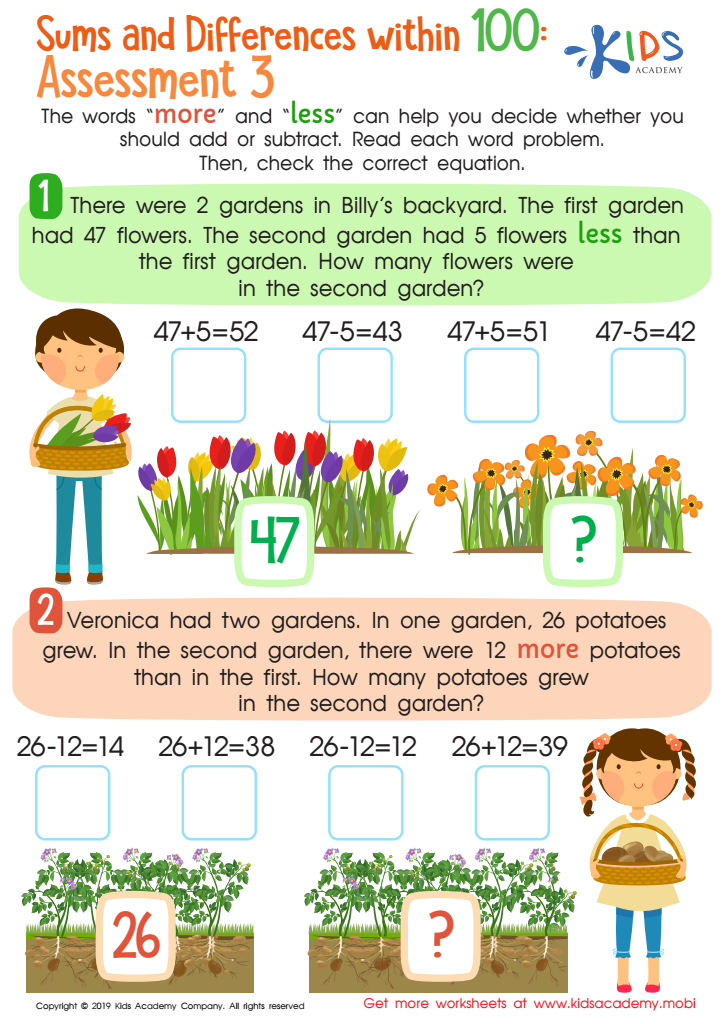

Sums and Differences Within 1 - Assessment 1 Worksheet
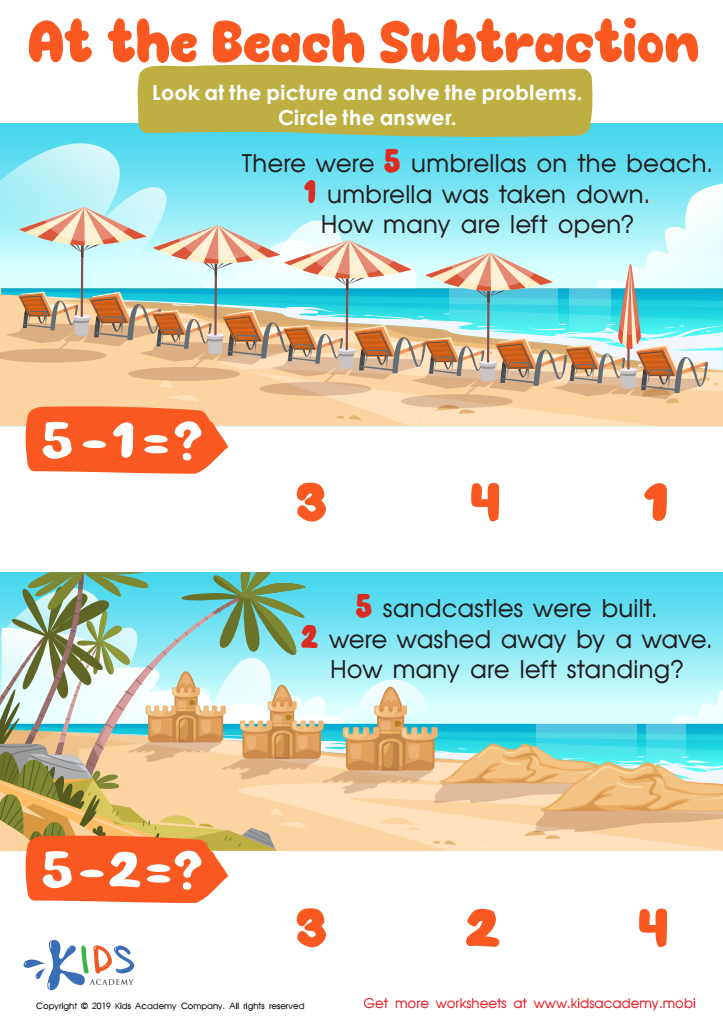

At the Beach Subtraction Worksheet
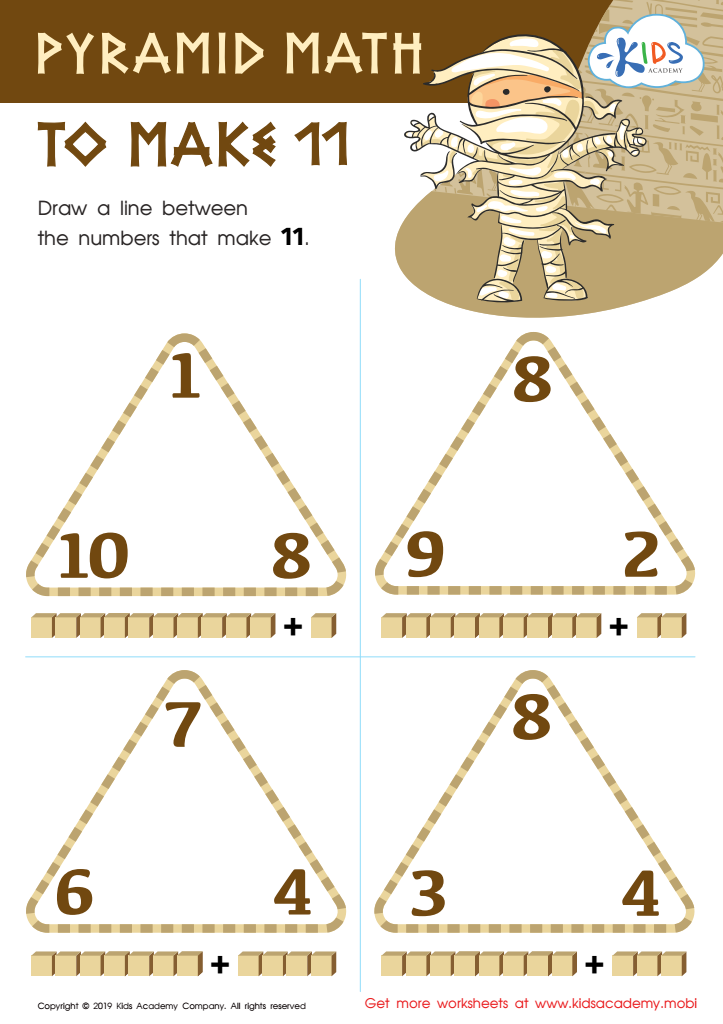

Pyramid Math to Make 11 Worksheet
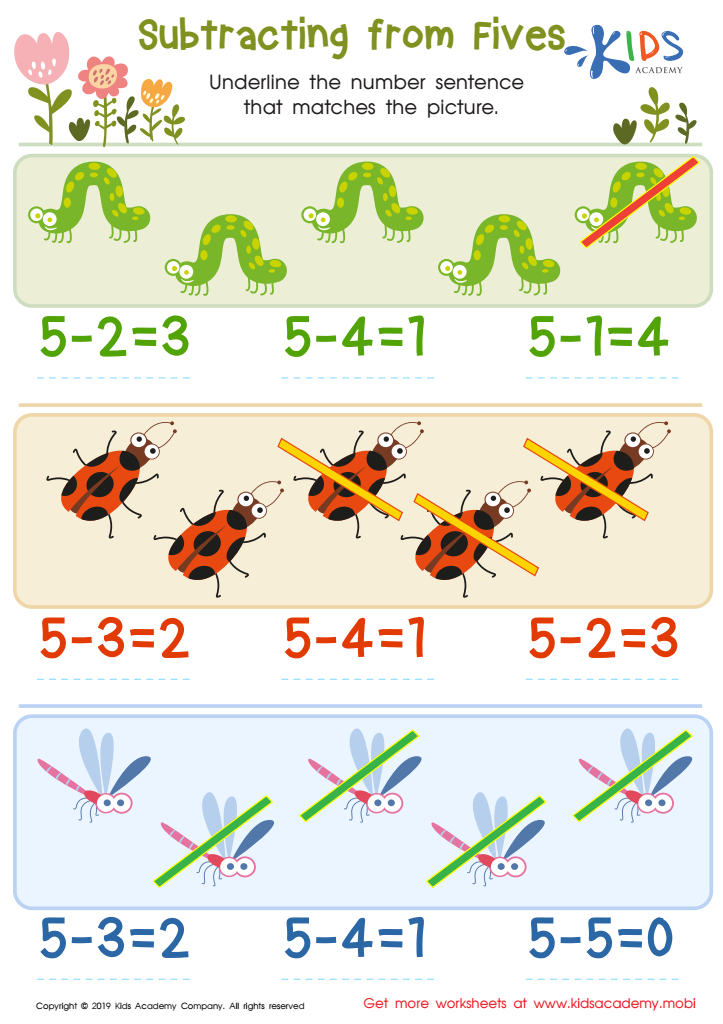

Subtracting From Fives Worksheet
Mental math skills are crucial for kindergarten students as they form the foundation for effective arithmetic and overall mathematical understanding. At this early age, cultivating mental math abilities enhances children's numerical fluency, enabling them to work with numbers confidently and efficiently.
When children engage in mental math, they learn to visualize numbers and develop critical thinking and problem-solving skills. These abilities not only contribute to future academic success in mathematics but also promote resilience in learning. Understanding mathematical concepts through mental calculations fosters a sense of achievement and self-esteem in young learners.
Parents and teachers should care about mental math because it lays the groundwork for lifelong learning. Encouraging mental math practices, such as estimating, breaking numbers into parts, or visualizing number lines, can make math more enjoyable and less intimidating for children. Additionally, mental math skills can help students become more independent learners, allowing them to approach math lessons with confidence.
Moreover, as children build these skills, existing frameworks for standardized assessments gain relevance, illustrating the importance of mental math in educational settings. Supporting mental math at the kindergarten level ultimately contributes to a well-rounded education and equips children with essential life skills for managing real-world problems.

 Assign to My Students
Assign to My Students

